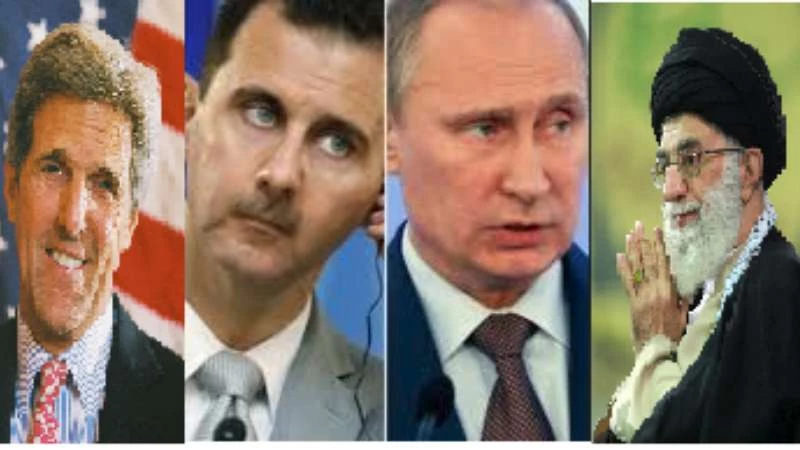"Obviously, not all the trend lines in Syria are going in the right direction," Kerry’s spokesman John Kirby admitted on Friday.
"There’s plenty of work to be done in the ISSG," he added. "And the secretary is still mindful of the challenges ahead."
But many of the US administration’s critics think the plan is doomed by a fundamental flaw -- it relies on Russia’s good graces.
Moscow has undertaken to pressure its ally Assad to respect the shaky truce that Washington hopes will smooth the path to political talks.
And the US, with Saudi Arabia, is working to reassure an opposition coalition that a ceasefire will lead to a political transition.
But what if, reassured by the military and diplomatic support of Russia and Iran, Assad and his regime have no intention of standing aside?
"And all we have against this is to meet with the Russians and plead with them to adhere to all of these agreements," he told AFP, arguing that Moscow has already backtracked.
"The Russians agreed to a clear political transition -- they have not delivered on that."
And it is not just former senior officials from Republican administrations who feel Kerry’s Russian outreach will not be enough to dislodge Assad.
"Keep in mind we’re not asking the regime to come to the table," said Philip Gordon, a former member of President Barack Obama’s National Security Council.
"We’re asking them not to exist. We’re asking them to get rid of their leader," he told reporters this week at the Council on Foreign Relations.
Kerry’s response to this obvious flaw in the ISSG strategy is to hope that Russia will grow tired of propping up Assad.
"I think many have consistently underestimated Russia’s determination to prevent this regime from falling," Gordon said.
In Jeddah before the full ISSG meeting, Kerry will seek to reassure the Saudis -- and through them the Syrian opposition -- that Assad’s days are numbered.
But it is not clear what will happen if he holds on beyond the supposed August 1 cut-off that the ISSG has agreed must be the start of a process of transition, AFP reported.
Meanwhile, some observers suggest the overthrow of Assad should not be Washington’s main target.
Gordon argued that the current position on the ground -- with Russian and Iranian forces defending Assad -- means any US meaningful intervention would be costly.
Without a large-scale US-led intervention -- one that the American public would likely not support -- Assad could cling to power indefinitely.
Instead of the Kerry plan -- which Kirby outlined as being to secure a truce, extend humanitarian aid and then begin a transition -- why not shift the focus off Assad?
Then, Gordon argued, if the ceasefire takes hold and people begin to see the benefits of peace, areas outside Assad’s control may begin to develop self-governance, AFP reported.
Jeffrey, by contrast, called for a tougher stance.
He compared the Syria strategy to the relatively successful bid to freeze the Ukraine conflict by stepping up NATO’s military posture and imposing sanctions on Moscow.
Would either plan work? No one can guarantee it. But nothing else has.



التعليقات (0)